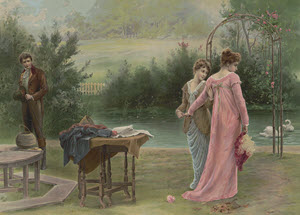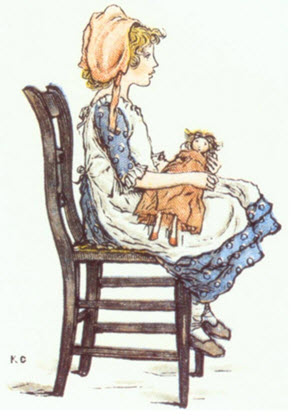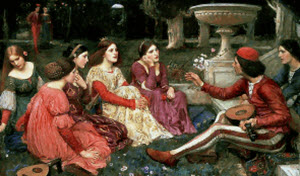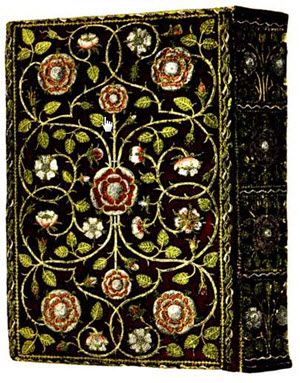EDGAR ALLAN POE - Part 7
Poe gathered other credentials, and went toward Washington. On his way he published in Baltimore his second volume, Al Aaraaf, and Tamerlane. He had sent manuscript copies of the verses to John Neal, then an important personage in the world of literature. Neal had said in the Yankee that E. A. P., of Baltimore, " might write a beautiful, if not a magnificent poem." In a later number he quoted Poe's ambitious reply: " I am quite certain that I have not written either - but that I can, I will take oath - if they will give me time." The Boston editor was amused by the confidence of the letter, but he was also impressed by the poetry, from which he quoted liberally, and concluded : " Having allowed our youthful writer to be heard in his own behalf,- what more can we do for the lovers of genuine poetry? Nothing. They who are judges will not need more ; and they who are not - why waste words upon them? "We shall not." This good-natured comment of Poe's first critic serves fairly well, after three-quarters of a century, for the "last word" to readers of Poe's poetry.
The Baltimore volume contained five revised pieces from the volume of 1827. "Al Aaraaf,"
the new title poem, is over-elaborate and obscure, but it is so characteristic of Poe in
its combination of starry vision and pseudo-astronomy that it is of a piece with "
Eureka," his last work, and it contains fine imagery and music of a kind which men who
began to read in the sunset of the Victorian age will think of as " modern": -
" Falling in wreaths through many a
startled star." " The eternal voice of God is moving by,
And the red winds are withering in the sky."
Such lines and the song,
" Spirit that dwellest where
In the deep sky
The terrible and fair
In beauty vie,"
whether we take them from the Baltimore volume or the later revisions, carry Poe into the company of strange singers from Shelley and Coleridge to Rossetti and James Thomson.
The Baltimore volume is noteworthy for the literary sophistication of the foot-notes. Critics have broken the butterfly upon the wheel by pointing out that Poe quoted at second-hand from authors he had not read, and that he made a false show of learning. The important thing is that he quoted with literary tact, and it required much diligent criticism to find him out. Emerson likewise drew analogies and illustrations from religions and literatures of which he knew little, and Carlyle's definition of kingship is not less eloquent because his discovery of "king" and "ableman" in a common source is false philology.




